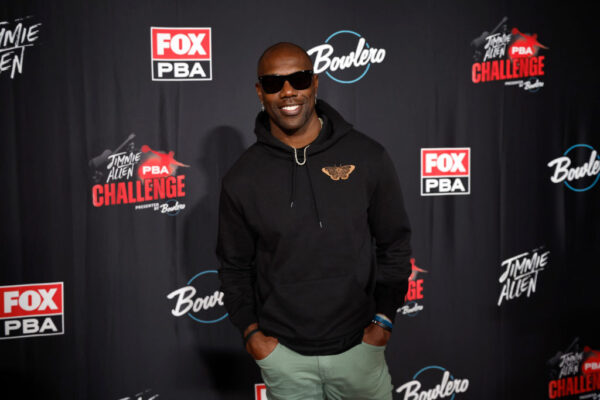Terrell Owens is considered one of the top 10 wide receivers in NFL history. He is second all-time in yards. He is also third in touchdown grabs. However, the talented athlete, who played in the league an astounding 15 seasons (five times longer than the average WR’s career), lost almost $80 million after investing too heavily in the real estate market and trusting his finances to people who were ill-equipped to manage his portfolio.

Despite being named All-Pro five times; going to six Pro Bowls; making over 1,000 catches, 15,934 receiving yards, and 153 touchdowns in his career (the fifth highest in NFL history); and getting elected into the Pro Football Hall of Fame at the age of 44, Owens fell victim to financial ruin because he lacked financial literacy.
Mo’ Money, Mo’ Problems
Throughout his career, he earned about $67 million in salary (the Cowboys signed him to a $25 million, three-year deal in 2005) and almost $13 million in endorsements.
What added to his money woes was coming from modest means and at one point desiring to be a big spender. Getting into the NFL was about rooted in his love of the sport, but also meant access to a life he only dreamed about.
In 2017 he told Nerdwallet that after being drafted into the league he was impressed by the lavish lifestyles of those stars he watched on television play the game.
“At that time, I got sucked into wanting to be like everybody else, the guys with the Mercedes and all the flashy cars and the jewelry,” Owens recalled. “I think those are some of the most idiotic purchases I think players can do, especially when they don’t have that money in the bank account to really pay for that stuff.”
Trying to keep up with others, Owens says, was a huge and costly mistake. Another mistake was not developing personal and professional discipline in the field.
Eventually labeled a bad boy, and the attention he received as a star athlete made him feel above the law. But he wasn’t and paid hefty fines for his behavior. In 2006, after spitting at another player, he was fined $35,000. He also collected a total of $150,000 for “excessive” celebrations after his touchdowns.
At the time, he didn’t care about the celebration fines saying, “It was worth it. That’s the least of my worries.”
Poor Management of Investments
Despite being impressed by the other ballers when he entered the league, Owens did not live as extravagantly as many other players.
He purchased several homes throughout the country, as he described to GQ, investing about $4 million on one piece of property in New Jersey. Owens believed if times ever got tough, he could rent out his many homes and condos, but after the housing market crashed in 2008, he struggled to maintain them, reportedly spending almost $750,000 a year in mortgages.
At this point, he had to put a couple of his properties on the market and the home that cost him $3.9 million was sold at a loss of $1.7 million.
He also invested in commercial properties like the $2 million “ill-fated Alabama entertainment complex (with an electronic-bingo component)” he purchased in his home state.
While the venture seemed like a good idea, his advisers did not warn him it was illegal to gamble in the state, and it was a violation of the NFL’s policy prohibiting players from investing in gambling.
When thinking back on this, he said, “I hate myself for letting this happen. I believed that they had my back when they said, ‘You take care of the football, and we’ll do the rest.’ And in the end, they just basically stole from me.”
In another interview, he reflected on many of his investments and said, “Well, it’s like ‘mo’ money, mo’ problems,’ so to speak. Sometimes at that moment you think [a purchase is] very well calculated … but in the long run you’re like, ‘Ah I don’t think I should’ve bought that.’”
Shady Advisers
His attitude about only focusing on football, added to his lack of understanding of how money works, especially when it came down to taxes and the purpose of financial advisers.
He reflected on not taking ownership of his finances and allowing others to manage his massive portfolio.
“We’re gonna take care of you. We’re gonna have your best interests at heart.”
“I took it for face value and I got burned,” Owens says. “I can’t blame them totally because I had some responsibility in that myself, because I should’ve been able to really manage my finances just as well as they were doing.”
Friends
Advisers were not the only people who cost Owens. He said in 2012 an associate he had helped out in the past stole a total of $270,000 from his account. While it was eventually returned to him by the bank, he was devastated by the breach of trust, saying, “It pretty much destroyed whatever trust in people I had left … I don’t have no friends. I don’t want no friends. That’s how I feel.”
Awareness
For Owens, not being a little concerned about his finances cost him almost everything. But he never learned about how to handle money, at least not multi-millions, as a child in Alabama, raised by his grandmother and mother and living with his three siblings.
Now, the retired athlete has a modest estimated net worth of $500,000. Reports say he continues to be financially challenged, paying up to $60,000 in child support and $63,000 in sheltering a month to four different women for the care of his children, and has recently had his Georgia home go into foreclosure.
According to Sports Illustrated, most professional athletes do not feel the impact of reckless spending and not being hands-on with their money until a few years after they retire. The outlet said “78% of former NFL players have gone bankrupt or are under financial stress” two years after they retire.




